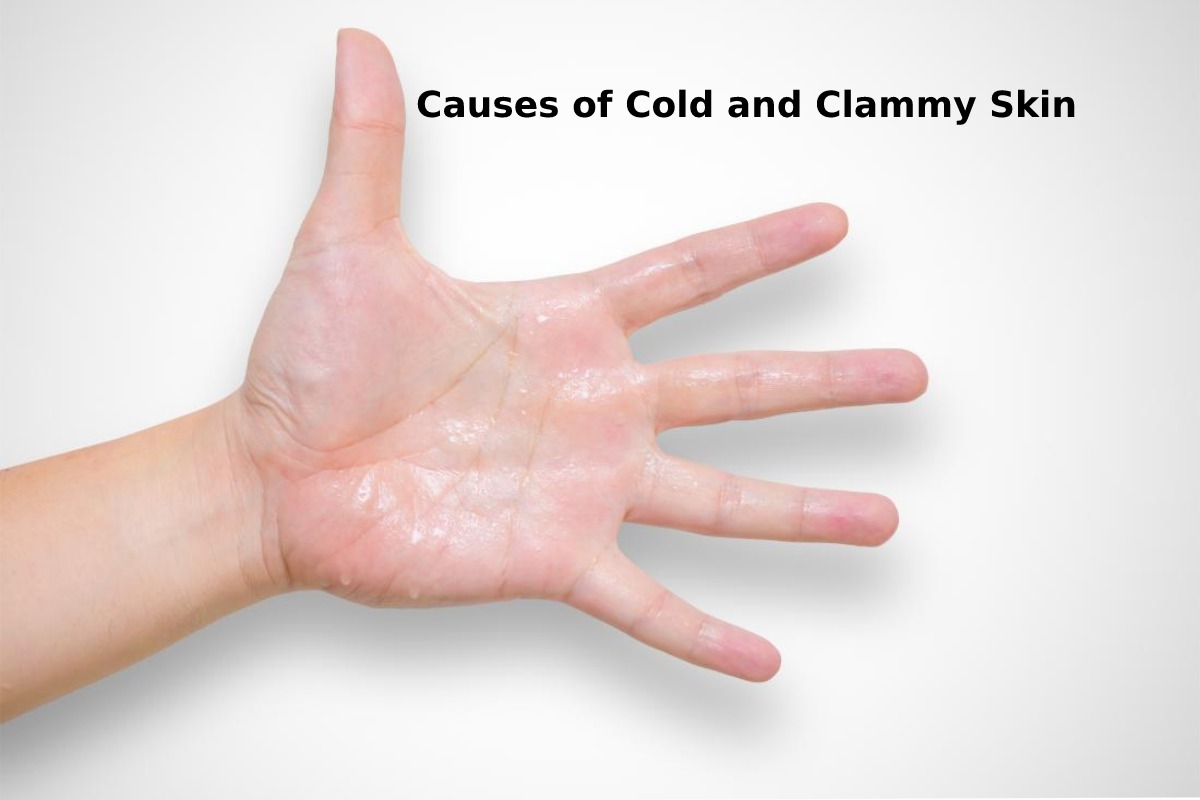Clammy Skin
Table of Contents
What is Cold, Wettish Skin?
Your skin can wilt unprepossessed and wettish skin when your soul temperature rises, whether from heat, exercise, or a fever. It is considering it causes your sympathetic nervous system (your “fight-or-flight” response) to signal your soul to produce sweat. As sweat evaporates, it helps wifely the body, leaving the skin feeling unprepossessed and clammy.
It’s a natural reaction. But if you sweat excessively or for no unveiled reason (like a hot day or exercise), cold, wettish skin could signify a medical condition.
These include hyperhidrosis (a disorder caused by excessive sweating), menopause or fever associated with a cold. But it can moreover remain a sign of a life-threatening condition, such as internal gory or a heart attack.
Why is My Skin Always Cold? – Clammy Skin

Cold skin is caused by narrowing (narrowing) of thoroughbred vessels, which reduces thoroughbred spritz to an zone of the body. It usually happens when you are in a unprepossessed environment. Whenever your soul temperature gets a little increasingly ramified than usual, your soul prioritizes thoroughbred spritz to your organs like the heart, lungs, and brain. During this time, the thoroughbred vessels supplying the hands and feet constrict, minimizing thoroughbred spritz to these areas. Blockages in these thoroughbred vessels can moreover rationalization your hands or feet to finger cold.
People with Raynaud’s syndrome wits sudden narrowing of the arteries in the fingers and toes when exposed to cold. As a result, the skin is ramified and may towards white or blue.
Cold intolerance can moreover occur when there are problems with the part of the smart-ass that regulates temperature (the hypothalamus), the thyroid gland, or thoroughbred spritz to the skin. For example, people with low soul fat, anaemia, or thyroid disease may wits unprepossessed skin.
What does a Wet Front Mean?
All over the world, mothers touch their child’s forehead when they fear that the child has a fever. Because the forehead is not covere by clothing, it is an easily accessible and reasonably reliable place to check for hot or sweaty skin. If someone with an average body temperature notices sweat on another person’s forehead, it could be a symptom of fever or another problem.
What is Wet Skin a Symptom of?
1. Infection With Fever
symptoms
- High temperature (above 100.4℉)
- sweat
- chills
- fatigue
- Other symptoms vary contingent on the type of infection (cough and cold symptoms, nausea and vomiting or painful urination and back pain)
Any infection that causes a fever can kind your skin cold and clammy. These include common, minor illnesses like a unprepossessed or upper respiratory infection and increasingly severe diseases like pneumonia, appendicitis, or kidney infection.
Your soul responds to an infection by raising its temperature to skiver the virus or bacteria. You may also experience chills because the surrounding air is cold in comparison. Your muscles contract in response, causing you to shake, generating body heat.
infection treatment
Your doctor will treat the infection based on what you have. However, in most cases of daily infections, it is generally acceptable to rest and drink fluids to stay hydrated and to take acetaminophen or ibuprofen to bring down the fever.
2. Menopause
symptoms
- Irregular or absent periods
- hot flashes
- Sweating with night sweats
- vaginal dryness
- mood swings
- Difficult to focus
Menopause occurs obviously in women as they age, usually around the age of 51. However, the ovaries become less active over time, and menstruation eventually stops altogether. You are consider to have entered menopause if you have not had a period for 12 months.
3. Hyperhidrosis
symptoms
- Excessive sweating, plane when you are not in a hot environment.
- Sweat soaks your clothes
- cold, wet hands
Hyperhidrosis occurs when you sweat excessively at times when your soul doesn’t need to sweat to tomfool itself down. The most worldwide seating areas are the armpits, face, hands and feet. Overactive sweat glands rationalization excessive sweating in these areas.
4. Hyperthyroidism
Symptoms
- Fast or irregular heartbeat
- sweat
- weight loss
- feel anxious
- Diarrhoea
- Dry skin
- brittle hair
- Enlarged thyroid gland (goitre) in the front of the neck
An overactive thyroid, moreover known as hyperthyroidism, occurs when you have upper levels of the thyroid hormone thyroxine. Graves’ disease, an autoimmune disease, is the most worldwide cause.
Treatment Of Hyperthyroidism
An overactive thyroid can be treat with oral radioactive iodine and antithyroid drugs. And thoroughbred pressure medicines undeniability beta-blockers (these can tenancy a rapid heart rate). If these treatments don’t work, your thyroid may need to be surgically remove. Once it’s remove, you’ll need to take replacement hormones for the rest of your life.
Internal Bleeding – Clammy Skin
symptoms
- Weakness
- drowsiness
- sweat
- Pale skin
- Pain (location varies depending on where bleeding is occurring)
- nausea or vomiting
- difficulty breathing
Internal gory refers to thoroughbred loss that occurs in your soul that is not rationalization by a well-spoken cut or injury. It can happen if you have recently suffered an injury, such as a B. fall or car accident. It can moreover be rationalization by a medical problem, such as B. a gory stomach ulcer, aortic aneurysm, or ruptured ectopic pregnancy.
Treatment of internal bleeding
Internal gory can be life-threatening if left untreated. So undeniability 911 or go to the emergency room if you have symptoms. In addition, you should be evaluate if you recently suffered an injury and did not receive firsthand medical attention.
Treatment includes IV fluids and, sometimes, thoroughbred transfusions or surgery. In addition, imaging tests such as ultrasound or CT scan may be washed-up to find the location of the bleeding.
Conclusion – Clammy Skin
Clammy skin refers to rainy or sweaty skin. Sweating remains your body’s typical answer to overheating. The moisture of sweat has a cooling result on your skin. However, changes in your body from physical effort or extreme heat can trigger your sweat glands and cause your skin to become clammy.

